Record capital inflows confirm strategic position
Speaking at the Vietnam Industrial Property Forum 2025 (VIPF 2025), Ms. Trang Le stated that despite the ongoing uncertainty in the global economy , Vietnam continues to maintain impressive growth. Specifically, Vietnam's GDP in the third quarter of 2025 is projected to reach 6.5%, and the industrial production index (IIP) is expected to increase by 9.8%. Notably, registered FDI capital in the first nine months of 2025 will exceed US$25 billion, an 18.1% increase compared to the same period last year. This clearly demonstrates Vietnam's attractiveness.
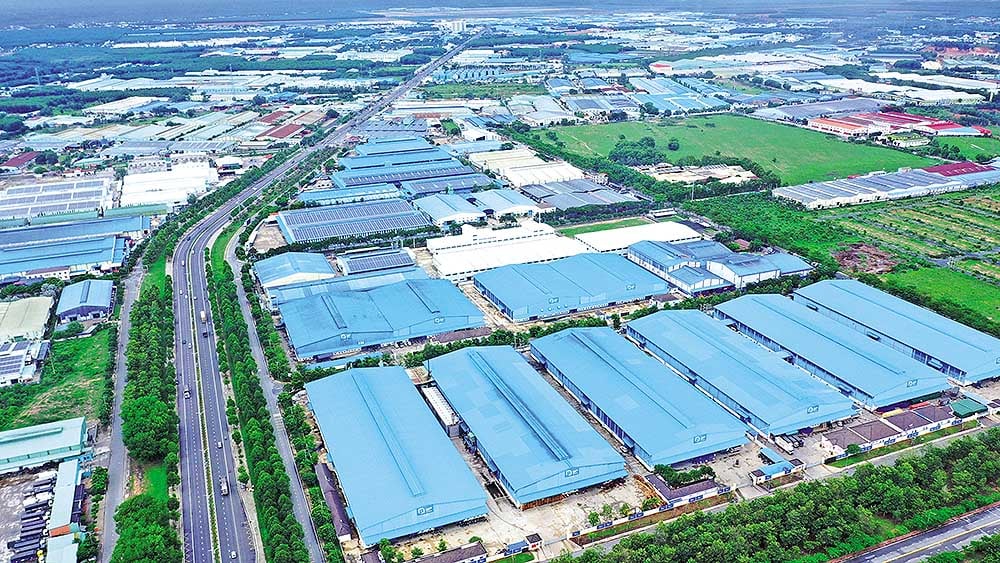
According to JLL, investment flows are shifting in the direction the government desires, focusing on high-tech, high value-added, and environmentally friendly projects. This reflects Vietnam's strategic vision of shifting global supply chains to sustainable manufacturing hubs.
Ms. Trang Le noted that Vietnam's industrial real estate market is entering its second phase of development – capital-intensive and technology-intensive, similar to China 20 years ago. “The development cycle of industrial real estate consists of three phases: labor-intensive, capital-intensive, and research and development (R&D). Vietnam is currently moving from phase 1 to phase 2 – a phase requiring large capital, modern technology, and high-quality human resources,” Ms. Trang Le analyzed.
According to the JLL report, the Asia- Pacific region is becoming the focal point of four next-generation manufacturing industries: semiconductors, automotive, pharmaceuticals and biotechnology, and renewable energy. Vietnam is among the top three of these four sectors prioritized by international investors, including semiconductors, automotive, and renewable energy, demonstrating its increasingly prominent position in the global production chain.
Furthermore, the market also shows a clear differentiation between the two key economic regions. In the North, the advantage of proximity to China helps this region continue to lead in attracting FDI in the electronics and computer components sector. Land lease prices have increased steadily by 6-8% compared to the previous year, while occupancy rates in Bac Ninh, Bac Giang, and Hai Phong have reached over 90%. New capital is gradually shifting to Hung Yen, Hai Duong, and some provinces in Central Vietnam.
Meanwhile, the South – the earliest developing region – is shifting towards a capital-intensive and high-tech phase, with a particular focus on green criteria and sustainable development. Land lease prices have increased by 8-12% year-on-year, and occupancy rates in Binh Duong, Dong Nai, and Ho Chi Minh City have reached 85-90%.
"Demand is strongly focused on ready-built factories and high-quality logistics warehouses, especially around Cai Mep port and the future Long Thanh airport," said Ms. Trang Le.
Central Vietnam, despite its smaller scale, is emerging as a "new transit hub" thanks to its logistics advantages and supporting industries.
Net Zero - a mandatory criterion in the global supply chain.
According to Ms. Trang Le, the Net Zero trend is reshaping investment standards. “Sustainable development is no longer an option but a mandatory requirement. Global manufacturers are committed to Net Zero and only choose green, smart industrial parks to participate in global supply chains.”
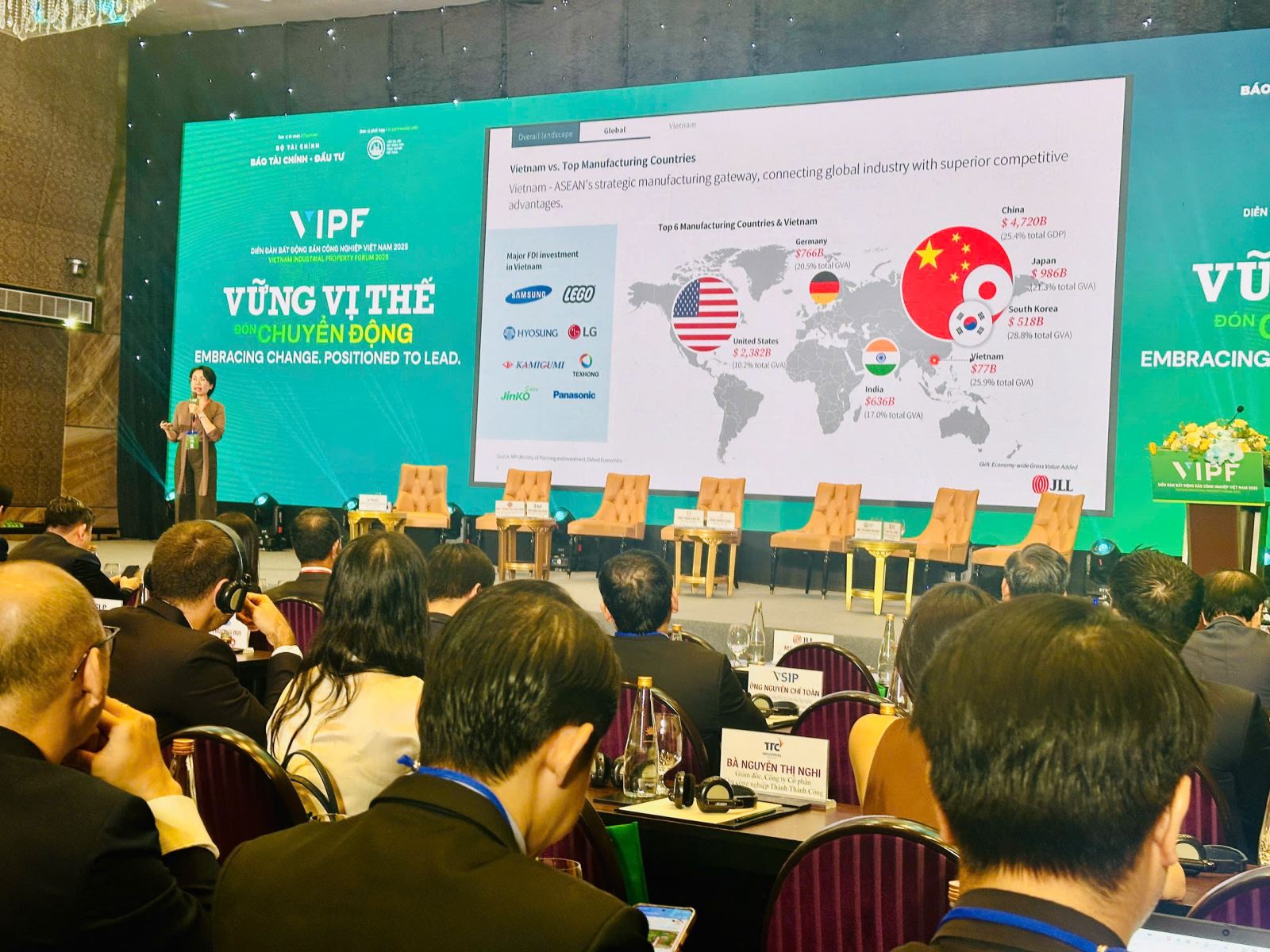
To maintain its attractiveness, Vietnam needs to accelerate the localization of its supply chains, enabling domestic businesses to participate more deeply, while simultaneously improving labor productivity and ESG governance capabilities. Ms. Trang Le emphasized that green and smart development has become a "passport" for high-quality FDI projects.
When comparing countries in the region, JLL ranks Vietnam fourth in overall competitiveness, after India, Thailand, and Malaysia. This index is based on two groups of factors: Financial factors including land prices, labor costs, electricity, water, and logistics; and Non-financial factors including investment environment, infrastructure, information transparency, and administrative procedures.
“Vietnam remains among the most cost-competitive, but there is still much room for improvement in non-financial factors. To maintain this position, we need to improve the quality of the investment environment, infrastructure, and support services,” said Ms. Trang Le, predicting that Vietnam's industrial real estate prices will continue to rise in the near future, reflecting improvements in product value and quality. However, the key is to focus on “intangible value,” including labor quality, production productivity, support services, and a transparent investment environment.
"Attracting high-quality FDI is not just about land prices or incentives, but about how Vietnam creates a modern, transparent, and sustainable business environment," Ms. Trang Le emphasized.
From JLL's perspective, Vietnam's industrial real estate is entering a crucial transformation phase, shifting from extensive to intensive growth, where "green, smart, and Net Zero" are becoming mandatory standards. This is also the path that will help Vietnam not only maintain its position as a regional manufacturing hub but also rise to become a strategic destination in the global value chain in the next decade.
Source: https://baotintuc.vn/kinh-te/net-zero-tam-ve-don-song-fdi-moi-vao-viet-nam-20251029205150570.htm


![[Photo] Prime Minister Pham Minh Chinh receives Lao Minister of Education and Sports Thongsalith Mangnormek](/_next/image?url=https%3A%2F%2Fvphoto.vietnam.vn%2Fthumb%2F1200x675%2Fvietnam%2Fresource%2FIMAGE%2F2025%2F12%2F16%2F1765876834721_dsc-7519-jpg.webp&w=3840&q=75)


![[Photo] Prime Minister Pham Minh Chinh receives the Governor of Tochigi Province (Japan)](/_next/image?url=https%3A%2F%2Fvphoto.vietnam.vn%2Fthumb%2F1200x675%2Fvietnam%2Fresource%2FIMAGE%2F2025%2F12%2F16%2F1765892133176_dsc-8082-6425-jpg.webp&w=3840&q=75)
![[Live] 2025 Community Action Awards Gala](/_next/image?url=https%3A%2F%2Fvphoto.vietnam.vn%2Fthumb%2F1200x675%2Fvietnam%2Fresource%2FIMAGE%2F2025%2F12%2F16%2F1765899631650_ndo_tr_z7334013144784-9f9fe10a6d63584c85aff40f2957c250-jpg.webp&w=3840&q=75)
![[Image] Leaked images ahead of the 2025 Community Action Awards gala.](/_next/image?url=https%3A%2F%2Fvphoto.vietnam.vn%2Fthumb%2F1200x675%2Fvietnam%2Fresource%2FIMAGE%2F2025%2F12%2F16%2F1765882828720_ndo_br_thiet-ke-chua-co-ten-45-png.webp&w=3840&q=75)
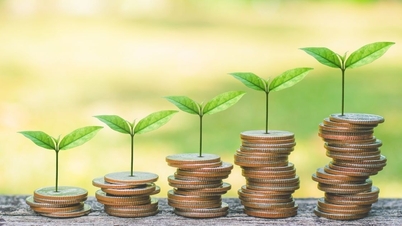
































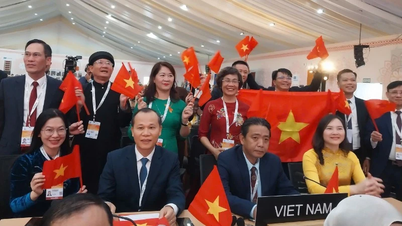







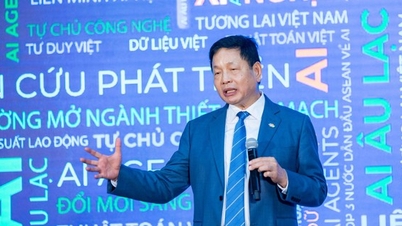





















![[Video] Independence and self-reliance linked with international integration through 40 years of reform](https://vphoto.vietnam.vn/thumb/402x226/vietnam/resource/IMAGE/2025/12/16/1765899635777_1-1-8054-png.webp)


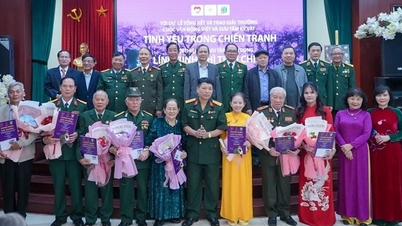









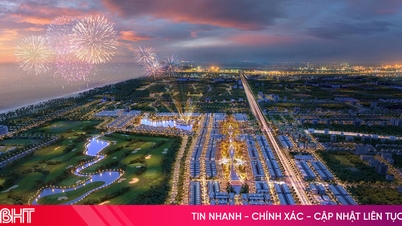









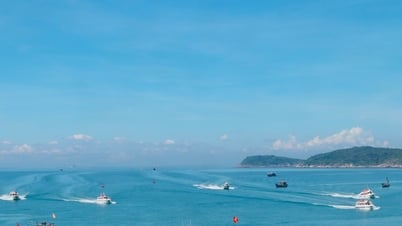











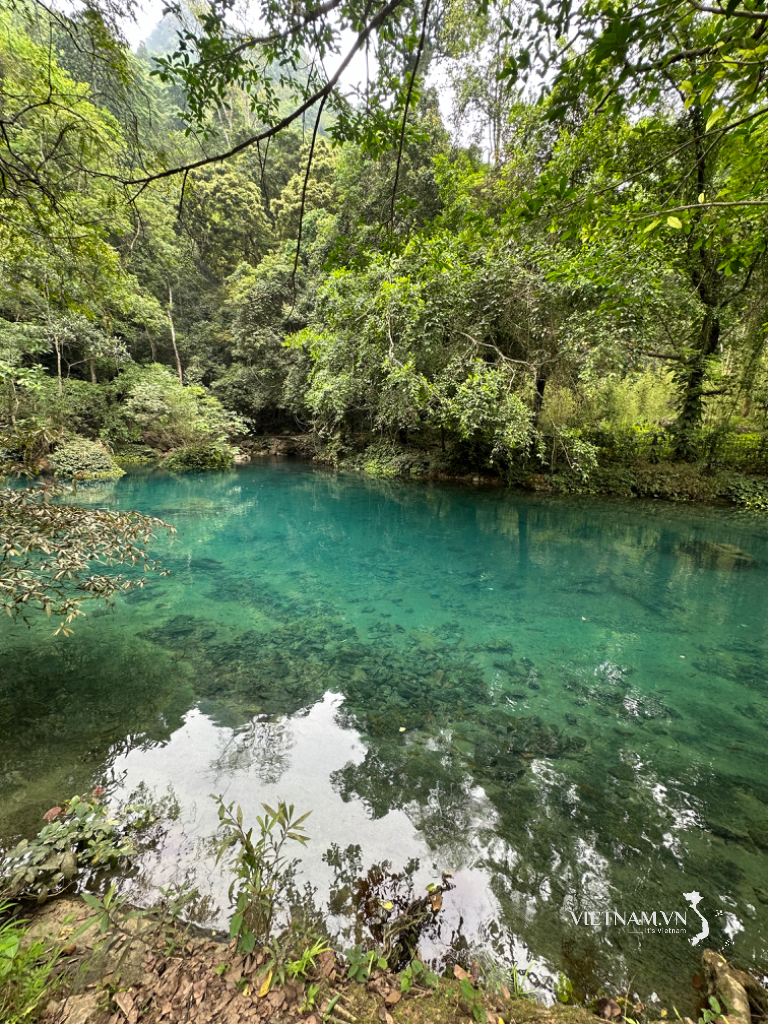
Comment (0)